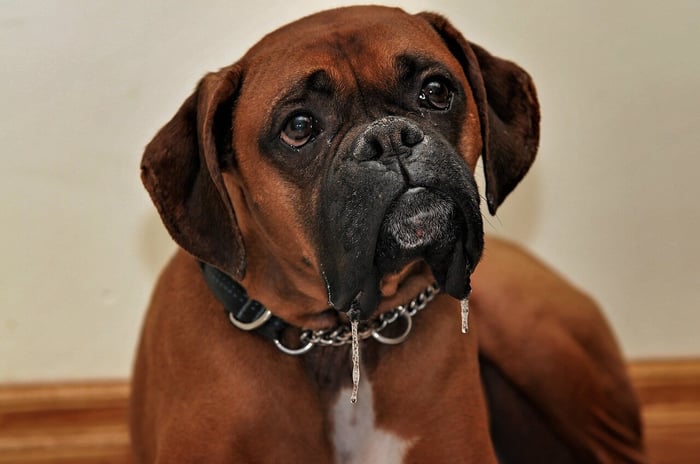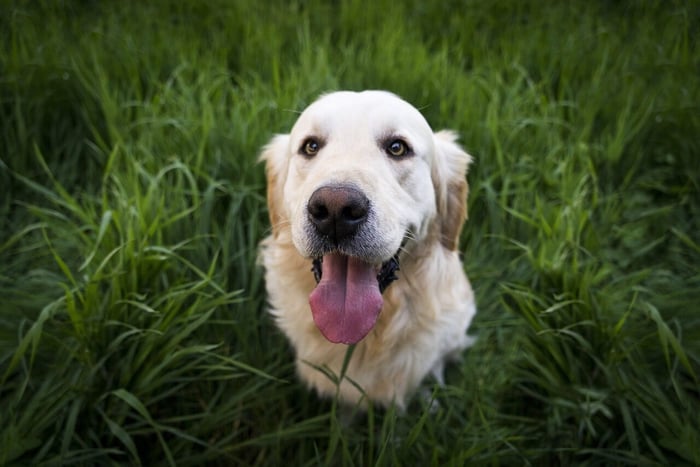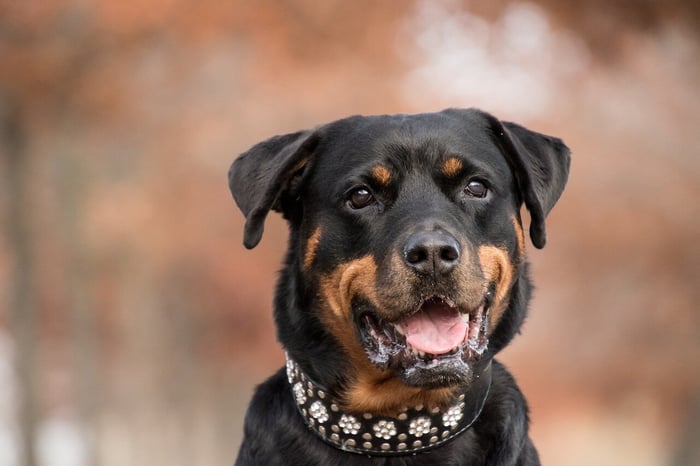The Boxer dog is one of the most recognizable and beloved popular dog breeds in the United States. Known for its boundless energy, distinctive square muzzle, and endearing “play-face,” the Boxer has earned a reputation as a family dog, therapy companion, and even in roles as police dogs or search and rescue partners. Whether you’re researching your first Boxer puppy or comparing German Boxers against American Boxers, there’s a lot to learn about this boxer breed’s rich history, characteristic temperament, and potential health considerations. In this in‑depth guide, we’ll cover everything from Boxer history—including their origins as war dogs in the world wars—to day‑to‑day care: exercise routines, grooming essentials, and top gear picks from FunnyFuzzy’s breed club of experts. You’ll also discover how responsible breeders ensure consistently whelped puppies that meet the AKC breed standard, and why the American Kennel Club and the American Boxer Club remain vital resources for prospective and current pet parents. So if you’re ready to dive into what makes a Boxer a “complete boxer,” let’s jump right in!
History & Origins
Originally bred in the late 19th century, the Boxer descends from the now‑extinct Bullenbeisser—a massive German hound used for hunting wild boar and acting as war dogs alongside humans in medieval Europe. After selective breeding seasonally at kennel clubs in Munich, the modern Boxer dog breed emerged, prized for its courage, agility, and natural protective instincts. By the early 1900s, the first Boxers arrived in America, and the American Boxer Club—the first such breed club in the U.S.—was established in 1904 to formalize the AKC breed standard for German Boxers and American Boxers alike.
World War I saw Boxers serving as messenger and ambulance dogs, cementing their reputation for loyalty under fire. Post‑war, their friendly but watchful nature appealed to small children and families, boosting popularity at Westminster Dog Shows. Today, Boxers remain one of the most popular dog breeds, balancing tradition with modern roles as therapy dogs, police dogs, and cherished companions.

Physical Characteristics
A true head‑turner, the Boxer sports a smooth coat and a distinctly chiseled head. Key features include:
Head & face: Broad skull, short muzzle, strong jaws; often seen with cropped ears (where legal) or natural floppy ears.
Eyes: Dark brown, expressive, set forward—giving a bright, alert look.
Body & build: Deep chest, well‑sprung ribs; muscular hind legs and straight, sturdy front paws. Their fawn and white male variants often feature striking white markings on chest and feet.
Coat texture & color: Ultra‑short, glossy coat in fawn, brindle, or white Boxers; minimal shedding but regular brushing with a rubber curry brush keeps the coat shiny.
Tail: Typically docked in the U.S., carried high and wagging enthusiastically.
Boxers fall into the deep‑chested dogs category, which confers dramatic lung capacity—but also increases risk of gastric torsion, so take care with feeding and activity around mealtime.
Temperament & Personality
If you’ve ever seen a Boxer at play, you know why they’re nicknamed the “Peter Pan” of dogs. Their playful breed nature shines in everything from boisterous zoomies to gentle nudges for a belly rub. Key aspects of Boxer temperament include:
Energetic & athletic: Built for agility courses and backyard fetch marathons. A Boxer puppy can’t wait to burn rubber—and you’ll need to match that passion with games and canine sports like agility, obedience, or even weight‑pulling.
Protective nature: Fiercely loyal to family, Boxers excel as guard dogs without undue aggression—thanks to early socialization.
Intelligence: Ranked among the smart dogs, they learn quickly but can be stubborn; training must balance firmness with fun.
Affectionate: Known as “velcro dogs,” Boxers form deep bonds, often shadowing their pet parents around the house.
Kid‑friendly: Their goofy antics delight small children, but supervision is crucial until basic commands stick.
Note: Boxers rarely make good apartment dogs unless you can meet their high energy and social needs. They thrive in families with yards, active lifestyles, or roles like search and rescue where their originally bred instincts shine.
Health & Genetic Issues
A proud breed with a generous heart, Boxers do face breed‑specific health concerns. Being informed helps you partner with veterinary medicine to give your dog the best life possible.
Boxer Cardiomyopathy (ARVC): A genetic condition affecting cardiac muscle, leading to arrhythmias. Regular ECG screenings from a young age are key—ask your breeder for heart‑clearance certificates.
Hip Dysplasia: As in many deep‑chested breeds, joint issues can emerge. Maintain a healthy weight to reduce strain, and consider joint supplements recommended by your vet.
Cancer Prevalence: Boxers are prone to mast cell tumors and lymphoma. Early detection via monthly skin checks and routine veterinary exams is vital.
Bloat (Gastric Dilatation‑Volvulus): Deep chest anatomy increases torsion risk—feed smaller, more frequent meals and limit vigorous exercise within an hour of eating.
Degenerative Myelopathy: A progressive spinal cord disease; genetic tests exist, so source from a responsible breeder.
Average life expectancy ranges from 10 to 12 years, though proactive care—nutritional balance, routine vet visits, mental enrichment—can support a longer, healthier life. Always discuss breed‑specific screening with your veterinary team.
Exercise & Activity Needs
If your daily routine stops at 30 minutes of walk time, a Boxer may not be the right fit. These dogs thrive on variety:
Daily runs or vigorous walks: Aim for at least 60 minutes, but 90–120 minutes keeps the high energy in check.
Canine sports & games: Agility, flyball, tug‑of‑war, and scent work channel the breed’s intelligence and athleticism.
Mental stimulation: Puzzle feeders, obedience drills, and new trick training stave off boredom-driven behaviors (think chewed shoes or zoomies at 3 AM).
Off‑leash play: Secure, fenced areas let Boxers revel in sprinting; just be mindful of heat intolerance due to their brachycephalic muzzle.
For families juggling work and kids, consider doggy daycare or a trusted walker—unmet exercise needs can lead to destructive chewing or separation anxiety.

Grooming & Coat Care
One of the joys of owning a Boxer breed is how little grooming they demand:
Brushing: Weekly with a rubber curry brush to remove loose hair and distribute skin oils, enhancing their shiny coat.
Bathing: Only as needed—Boxers rarely smell strong. Use a gentle, pH‑balanced shampoo.
Nails & paws: Trim the boxer’s nails every 3–4 weeks; check pads and clean between toes after outdoor adventures.
Ears & teeth: Wipe floppy or cropped ears weekly to prevent infections; brush teeth 2–3 times weekly to reduce tartar buildup.
Shedding: Light year‑round, with occasional heavier molts—keep lint rollers handy.
Their coat length is short enough that grooming sessions double as bonding time and health checks, ensuring you spot skin issues or lumps early.
Nutrition Tips
Proper fueling supports your Boxer’s robust frame and leafy spirit:
High‑quality protein: Look for real meat sources first on the ingredient list to maintain muscle mass.
Controlled calorie intake: Deep‑chested dogs can gulp food quickly; slow‑feed bowls and puzzle feeders deter gulping and limit bloat risk.
Fat & joint support: Omega‑3 fatty acids and glucosamine/chondroitin supplements can help prevent hip dysplasia later in life.
Life stage formulas: Boxer puppies need nutrient‑dense puppy diets up to young age milestones, while adults transition to maintenance blends to repel weight gain.
Hydration: Plenty of fresh water, especially after play; monitor intake if you’re away, as excessive thirst can signal health issues.
Avoid over‑treating this playful dog—even “healthy” snacks add up. Work with your veterinarian to tailor feeding amounts based on activity level, age, and body condition.
Training & Socialization
Boxers are bright but can be headstrong. Early, consistent training sets the foundation:
Positive reinforcement: Reward desired behaviors with praise, treats, or play; harsh corrections can damage trust.
Basic commands: Sit, stay, come, and loose‑leash walking by same dog’s age of 4 months.
Crate training: Offers a safe den, aids in housebreaking, and reduces separation anxiety.
Socialization: Expose your puppy to different people, animals, sounds, and environments between 8–16 weeks—this reduces fearfulness and encourages resilience.
Impulse control exercises: Teach “leave it,” “wait,” and calm greetings to curb jumping and pulling.
For advanced learners, channel their energy into canine sports like agility or therapy dog certification. With clear boundaries and consistent practice, your Boxer will flourish as a well‑mannered companion.

Living With a Boxer
Each family dynamic calls for different considerations:
First‑time families: Supervise interactions with small children, teaching kids gentle touch and commands like “sit.”
Apartment dwellers: Ensure access to dog‑friendly parks; a dog walker or doggy daycare helps unload extra energy.
Active outdoors enthusiasts: Boxers excel on trails but watch for overheating; pack water breaks and avoid midday sun.
Seniors & retirees: The breed’s protective nature is comforting, but consider lower‑energy alternatives or mixed‑age adoptions if mobility is a concern.
Multi‑pet homes: Introduce Boxers to resident cats or dogs slowly; their protective nature can look like aggression until proper hierarchy is established.
Regardless of your setup, Boxers thrive on human interaction. They’re not ideal “left alone” dogs—they crave companionship and can develop separation‑related issues without proper outlets.
Recommended Gear for Boxers
Equip your Boxer for comfort, safety, and fun:
Orthopedic Dog Beds: Deep‑chested dogs benefit from joint support—our memory foam beds cradle hips and shoulders.
Cooling Vests & Mats: Great for hunting dog trips or summer walks; regulate body temperature and prevent heat stress.
Back‑Seat Carriers & Dog Car Seats: Secure harness attachments and side bolsters keep a Boxer safe on road trips or vet visits.
Rubber Curry Brush: Perfect for their smooth coat, boosts circulation and eases shedding.
Slow‑Feed Puzzle Bowls: Prevent gulping and reduce bloat risk, supporting digestive health.
Conclusion
Now that you’ve explored every facet of Boxer dog information and characteristics, you’re well‑prepared to welcome one of the most playful breeds into your home. From their storied war dog past to their affectionate roles as therapy dogs and vigilant guard dogs, Boxers combine heart, muscle, and brains in equal measure. Remember to prioritize regular health screenings (think Boxer cardiomyopathy and hip checks), meet their high energy head‑on with daily activities, and invest in gear that supports their unique build—whether it’s a cooling mat for summer runs or an orthopedic bed for restful nights.
Ready to take the next step? Check out our Boxer Puppy Guide for tips on choosing a first Boxer, or explore our top‑rated Orthopedic Dog Beds to keep your adult Boxer comfortable for years to come. Your new best friend awaits!











